‘Nagorno-Karabakh is not the property of the elected elite to be surrendered’
Steven Sahiounie of MidEastDiscourse interviewed Abraham Gasparyan, PhD in Political Sciences, Associated Professor at Yerevan State University, TV Commentator, and Founder and Director of “Genesis Armenia”, a think tank, on the latest developments in the region.
Published: September 20, 2022, 9:48 am
On September 12, 2022, clashes erupted between Armenian and Azerbaijani troops along the Armenia–Azerbaijan border resulting in almost 300 deaths and dozens injured, with both sides blaming the other.
US Speaker Nancy Pelosi arrived in Armenia this week, leading a congressional delegation in a show of support following the deadly clashes in a decades-old dispute over the territory of Nagorno-Karabakh, where a truce has been in effect since Wednesday.
Steven Sahiounie (SS): After a period of calm between Armenia and Azerbaijan, which President Putin of Russia was involved in, we now see a flare of tension. In your opinion, what was the cause of this newest tension?
Abraham Gasparyan (AG): In the Middle East, Eurasia (Ukraine) and Central Asia, Russia is busy maintaining its own influence in strategic, security, military, political and economic spheres. The South Caucasus has become the weakest and most vulnerable link for Moscow, which is trying to maintain its strategic interests from the Mediterranean and Black Seas to Central Asia. The connecting link of these two regions is the South Caucasus, the most important road of which passes through the Syunik region of the Republic of Armenia. That region borders Iran, which has a pronounced anti-Western stance.
Azerbaijan and Turkey (backing from NATO) want to neutralize Iran and remove Russia’s influence from the South Caucasus. Armenia is the only country here with a Russian military base. The Russians already have a military presence in Azerbaijan, in Aghdam. There is one important circumstance here, regardless of the positions and interests of international actors and decision making centers. Before and after the 2020 September war, Azerbaijan continued to build its political and political narratives on clear messages of Armenophobia and illegal claims to Armenia’s sovereign territories. Unbroken and continuous calls for aggression, making the establishment of relations with Armenia conditional on revanchist war…This was the destructive and hostile approach of official Baku.
During the last Artsakh war, Azerbaijan was unable to solve the military and political problem it faced, that is, to occupy all of Artsakh and depopulate that Armenian territory. Even major states like Turkey and Pakistan helped Azerbaijan, provided huge military, logistical and financial support, bombarded the civilian population of Artsakh with cluster and phosphorus bombs, terrorist groups from Syria and Libya fought in Artsakh, but Artsakh and Armenia were able to resist. Baku is not satisfied with that. The political ideology of that state is built on the Nazi approach of exterminating Armenians and occupying Armenia. They continue that approach after the 44-day war and want to establish a land connection with the Armenian Nakhichevan, which was already seized to Soviet Azerbaijan in 1921, through the Syunik corridor. The ultimate goal is to occupy the Syunik Corridor and create a land link for the Turkish world by annexing the sovereign territory of Armenia.
SS: The conflict between Russia and Ukraine has affected Europe. In your opinion, how will this Armenian and Azerbaijan conflict further affect the region?
AG: The region will face a fundamentally unstable situation, if conflict resolution is accompanied by a zero-sum game or a winner-takes-all mindset, we will witness a re-escalation of this conflict. Conflicts should not be settled militarily.
Azerbaijan has taken possession of its coveted territories, which it captured with the help of Turkey during this last war. Moreover, those territories of Artsakh that do not belong to Baku are under the control of Baku, that is, Azerbaijan has occupied many territories of Artsakh through military aggression. Moreover, after the 44-day war, Azerbaijan occupied more than 150 skm of sovereign Armenia and its Armed Forces are in those territories.
Armenia is ruled by an elite that does not want to expel the aggressor for the sake of regional peace, hoping that the aggressor will leave the territory of Armenia on its own. Now imagine: the government changes in Armenia and a new government is formed, which first of all wants to restore the territorial integrity of the state. It means: new war, new destruction, new victims, instability. The most important component of security and stability is the existence of clear mechanisms for non-violent conflict resolution, political and security guarantees of international actors. If the USA, Russia, China and Europe will not be able to provide these guarantees, then the stability and the economic interests of these states will be under serious attack. And we see it. Europe needs to get out of dependence on Russian gas and reach the gas resources of the Caspian Sea and Central Asian countries through Azerbaijan, and the US wants to sell it and limit Iran’s economic and oil export opportunities. That is, the reason for the outbreak of the conflict in the South Caucasus and the change in the status quo is economic interest, the neutralization of the roles of Iran and Russia, the opening of land routes and the increase of the western sphere of influence through the liberalization of communications. Even if they manage to convince the weak government of Armenia in this matter, forcing regional giants like Iran and Russia is an extremely difficult task, which affects the military and security relief of the South Caucasus.
SS: The US supports Ukraine against Russia both militarily and ideologically. Do you feel that the US has a role to play in the conflict between Armenia and Azerbaijan?
AG: In addition to the status of the co-chairing country of the OSCE Minsk Group, the United States, as a world superpower, also has an obligation to maintain the commitment to stability, security and democracy, which is one of the vital constitutional, political and propaganda norms of that state. The US has a powerful diplomatic, security, intelligence, and economic toolkit to influence international law violations committed by any state. American interests in the South Caucasus have always clashed with the national interests of Russia and Iran. In the past, it was possible to settle it with bilateral or Washington-Moscow arrangements. After Russia’s military operations in Ukraine, we see an intensification of American diplomacy and operations in the South Caucasus, where Washington did not have a clear and constant policy, except in Georgia. The American offer to Armenia must not be purely anti-Russian in nature, it will be an adventure and fraught with unforeseen dangers.
Regarding Armenia’s security, energy independence and Artsakh issue, clear mechanisms and guarantees are necessary, otherwise Armenia and the Armenian society will consider the American “intervention” as a deliberate subversion. Washington should have a clear position regarding the sovereignty of Armenia and the political fate of Artsakh, that is, any violation of the borders in the region will be met with harsh opposition. There is a need for an American conceptual and strategic approach towards Artsakh conflict, which is an issue of human rights and self-determination. This natural right cannot be subordinated to the principle of territorial integrity. Of course, American oil and gas interests in Azerbaijan are understandable, but we should not forget that the American political value system will collapse if Washington ignores the dossier of democracy and human rights and freedoms. The US must build its political narratives on inviolable values. The change of borders in Ukraine has been a motivation for attempts to change the political map of the world in different regions. The clear evidence of this is Turkey’s behavior in relations with Greece and Azerbaijan’s aggression against Armenia. Washington marvelously knows the formula of success. Political pragmatism and an arbitrary interpretation of international law prevent the US from simultaneously spreading values and avoid violating the norms of international law.
SS: There are reports of protests in Yerevan because of a statement by Prime Minister Pashinyan, in which he seems to be ready to cede territory. In your opinion is he ready to give up Nagorno-Karabakh?
AG: Any document must go through an internal legal process, that is, any statement, agreement, convention, treaty or document, that the political elite deems appropriate, must be checked and go through internal legal and constitutional process. In such a case, the establishment of diplomatic relations with Azerbaijan, the recognition of mutual borders and not having territorial claims against each other should be discussed in the country’s parliament, then the highest judicial body of the country, the Constitutional Court, should check whether this document is in discrepancy with the Constitution. Armenia has no legal obligation or right to decide the political fate of an entire people. Armenia was only the guarantor of the security of Artsakh people in this conflict. And that approach collapsed after the 44-day war, when Russia assumed that “responsibility”. Nagorno-Karabakh is not the property of any person or even “democratically elected elite” to be donated or surrendered with a single signature. Artsakh is an Armenian land for 5000 years and 140 thousand people live there, who legally decided to live independently 31 years ago during the collapse of the Soviet Union. The Armenians of Artsakh know what it is like to live under the political rule of hostile Azerbaijan. Shortly it means genocide. Artsakh has never been part of independent Azerbaijan and cannot come under the vertical influence of Azerbaijan in any capacity and any case. They are very well aware of this in Yerevan, Baku and Ankara, as well as in the political capitals of the world. If Artsakh is annexed and becomes part of Azerbaijan, then international law and the concept of self-determination of nations will become meaningless, and the Westphalian system will become an object of ridicule in international relations. The citizens of Armenia voted for this current government not to hand over territory, but to settle the conflict through diplomatic means. Pashinyan’s government failed to do so by collapsing diplomatic channels and ties with potential allies, lead the country to war and exhausted the diplomatic immunity of the conflict settlement. After that, he has no political and moral right to play the role of an actor in the settlement of the conflict.
SS: If the Armenian people do remove Prime Minister Pashinyan, will this have a positive effect on Armenia economically, politically, and socially?
AG: Definitely yes. Pashinyan’s coming to power was the result of the ineffectiveness of the government system in Armenia for years and the interference of external factors. The West has always wanted to push Russia out of the South Caucasus and did not take into account the fact that this mechanism cannot work in a drastic way in Armenia. If there is no alternative, then there will be no positive response either. More than 2.5 million Armenians live in Russia and Armenia cannot be in an anti-Russian position. Besides this, we must take into consideration the deep historical, cultural and political ties between Armenia and Russia.
Armenia cannot pursue a similar policy towards its historical neighbor and brotherly Iran, with which the border has a history of several millennia and with which ties date back to ancient times, when dozens of states did not even exist in this region. The basis of Armenia’s foreign policy is the concept of balancing regional and international interests. To say that Pashinyan’s government did not realize this, would be naive. Knowing this much and distorting the map of relations with neighbors and natural allies means deliberate steps to change the geopolitical balance of the region, which will naturally lead to economic collapse and uncontrollable chaos.
Pashinyan’s ideological and geopolitical, economic and security policy weakened Armenia’s position. Armenia was a security factor in the region. Today it is facing serious security problems. Although it must be admitted that the combat capability of the Armenian armed forces is at a high level and the proof of this was the high fighting spirit and the ability to perform a military task during the last aggression by Azerbaijan. There is social polarization in Armenia and the current government also failed the investment and economic policy. The government succeeding Pashinyan will face a very difficult period. Pashinyan fulfilled the geopolitical task entrusted to him, that is, to hand over the territories outside the borders of the Nagorno-Karabakh autonomous region (which was under the control of Artsakh) to Azerbaijan and to liberalize land communications in the region, which was in the interests of the states dealing with the settlement of the Artsakh conflict. Pashinyan must go so that Armenia can restore the economy and ensure its own security. This is the expectation of Armenia and the majority of the Armenian people.
Steven Sahiounie is a two-time award-winning journalist.
All rights reserved. You have permission to quote freely from the articles provided that the source (www.freewestmedia.com) is given. Photos may not be used without our consent.
Consider donating to support our work
Help us to produce more articles like this. FreeWestMedia is depending on donations from our readers to keep going. With your help, we expose the mainstream fake news agenda.
Keep your language polite. Readers from many different countries visit and contribute to Free West Media and we must therefore obey the rules in, for example, Germany. Illegal content will be deleted.
If you have been approved to post comments without preview from FWM, you are responsible for violations of any law. This means that FWM may be forced to cooperate with authorities in a possible crime investigation.
If your comments are subject to preview by FWM, please be patient. We continually review comments but depending on the time of day it can take up to several hours before your comment is reviewed.
We reserve the right to delete comments that are offensive, contain slander or foul language, or are irrelevant to the discussion.
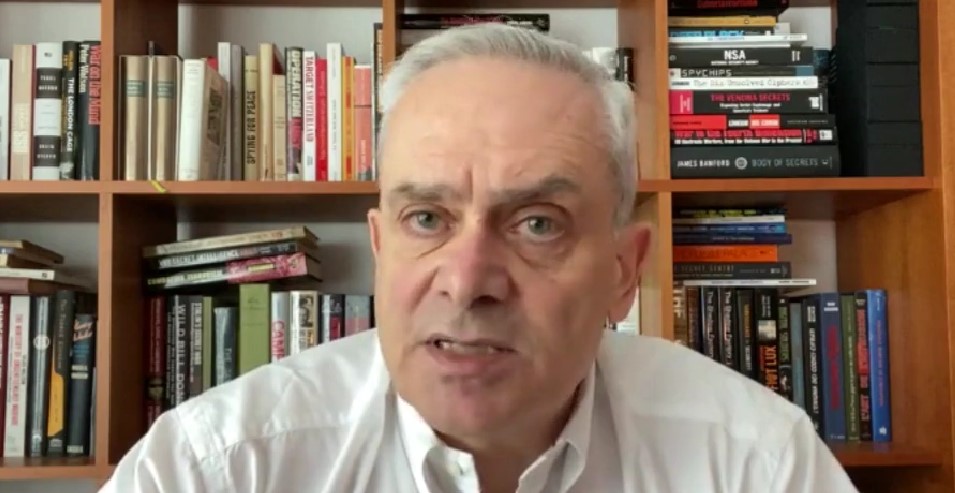
Jacques Baud on the Ukraine war
In an interview with the independent US media portal grayzone.com, the retired Swiss intelligence officer, NATO advisor and author Jacques Baud dealt with the Ukraine war and in particular sharply criticized Western media reporting.

Interview with Thierry Baudet: ‘Fantastic that Putin exists’
The HagueA recent interview with Thierry Baudet has caused a stir on Twitter. For several days now, the trending topic #Baudet has been going around. In the English-language interview, he does not mince his words when talking about the war in Ukraine. In it, he flatly states that he is taking the side of the Russians.
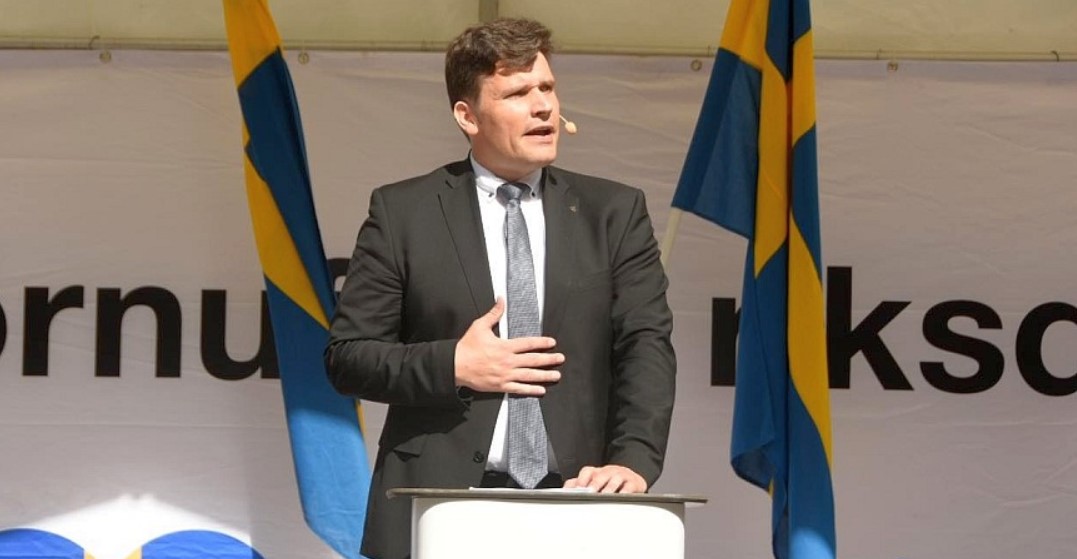
German AfD politician believes Alternative for Sweden has great future potential
StockholmStefan Korte, active in the nationalist party Alternative für Deutschland (AfD) in the state of Brandenburg, participated as a guest speaker at the AfS' election campaign on August 6.
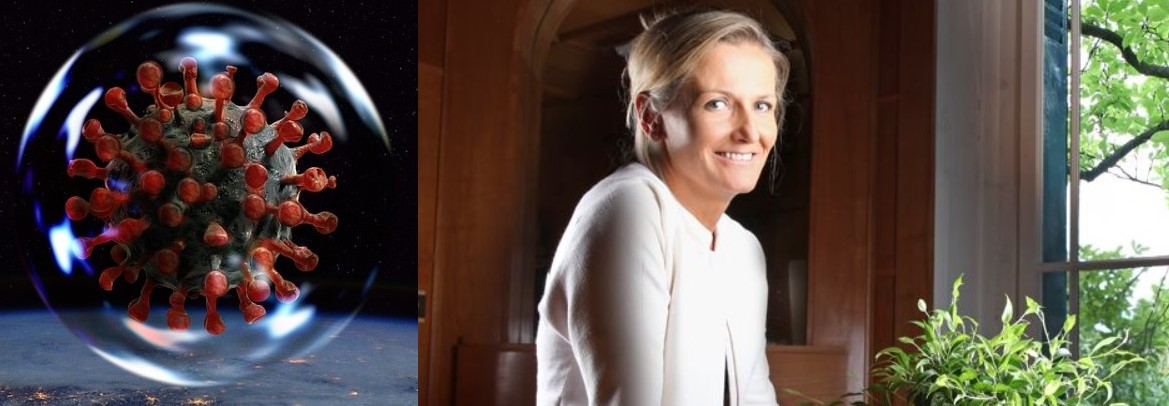
Former WHO employee Astrid Stuckelberger: ‘A pandemic of lies’
Geneva"I am not an alarmist, I just want to explain with science, the lies, the corruption, the propaganda… And about the harm from the vaccines. Because I'm an expert in public health and science." Astrid Stuckelberger has 30 years of experience as a researcher. In the years 2009-13, she was affiliated with the WHO, with pandemics as her specialty. She has published 180 publications and 12 books.
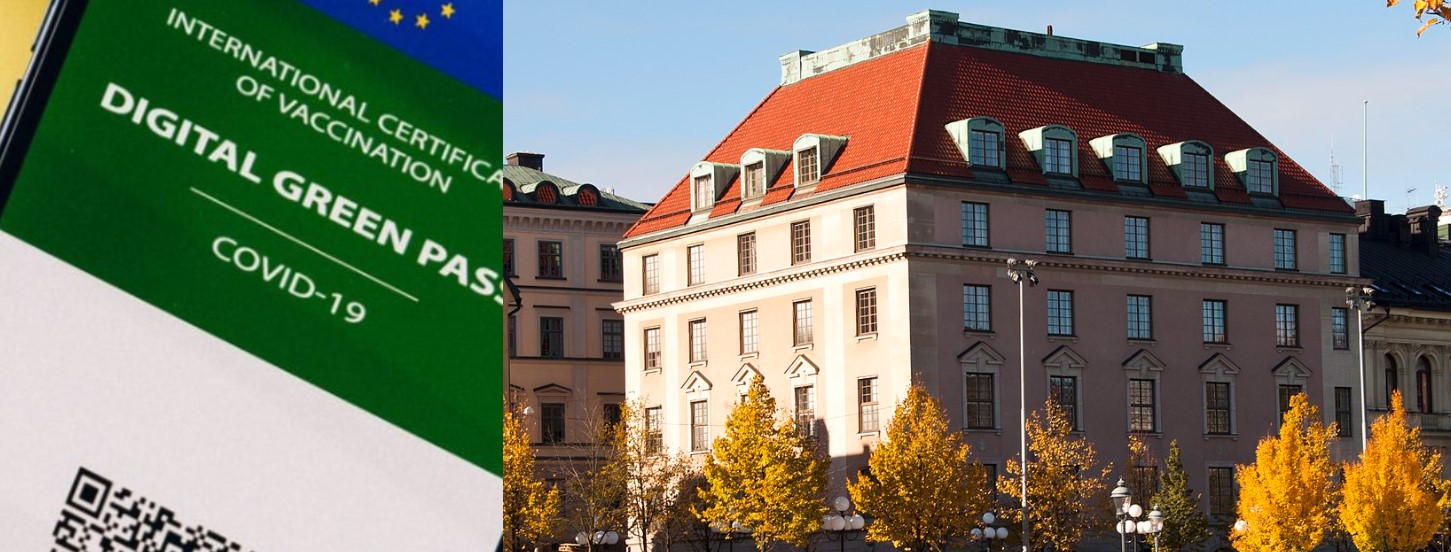
Swedish ombudsman inundated with complaints about compulsory health pass
StockholmSweden's Ombudsman, (JO), is currently drowning in reports from upset Swedes regarding the intended vaccine passes announced by the government and the Public Health Agency. In an interview, JO's information manager, Anders Jansson, admitted that about 6 300 reports have been received so far. He said he has never seen anything like it in such a short time.
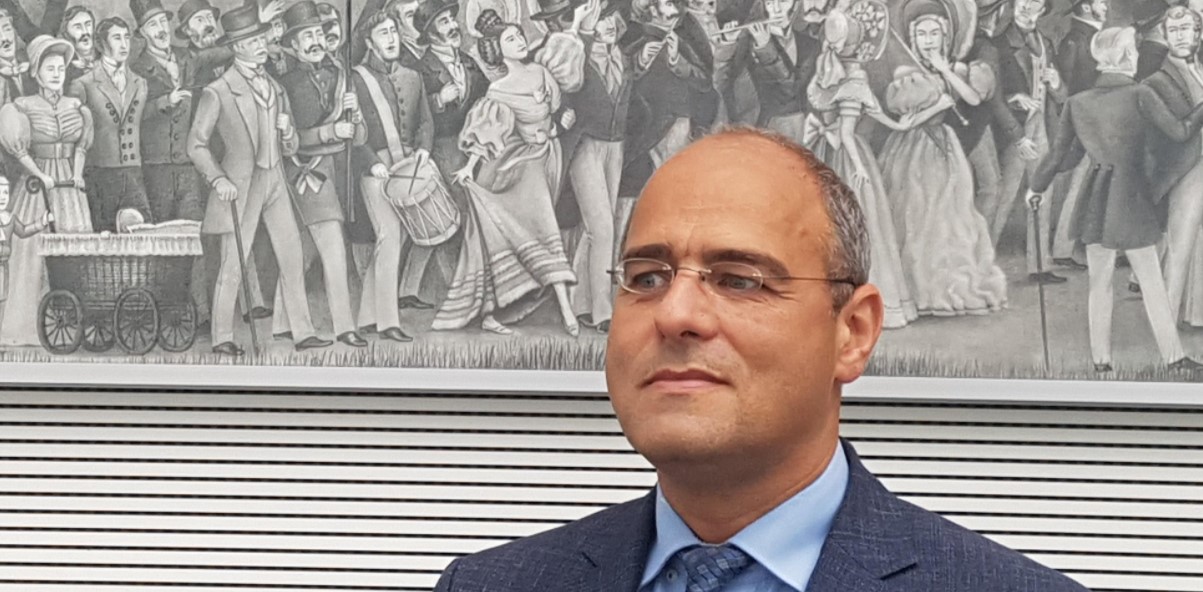
The inauspicious link between Corona and inflation
BerlinThe AfD member of the Bundestag, Peter Boehringer, was interviewed on various current topics in Germany at the beginning of November. He spoke to German journalist Boris Reitschuster. Boehringer is a member of the German libertarian Friedrich August von Hayek society and a climate change critic.

Reiner Füllmich: The pandemic is a global coup d’etat
The famous lawyer Dr Reiner Füllmich speaks exclusively to Free West Media on the topic of the pandemic and the draconian measures that many countries have adopted, and how he and others will be challenging this in court.
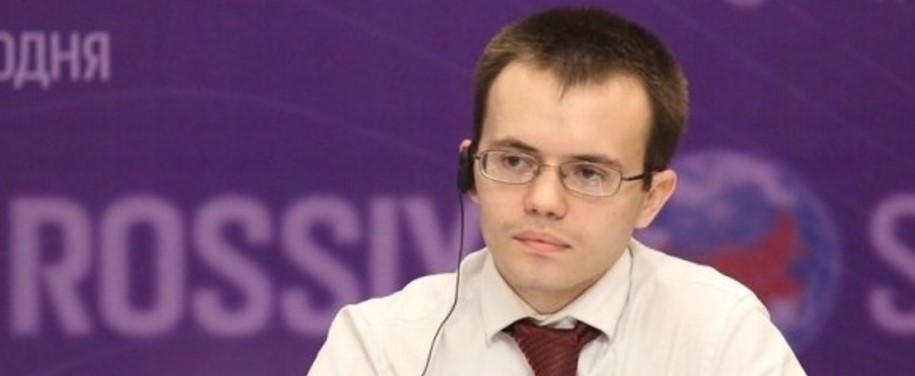
‘US always pursues its interests at others’ expense, even allies’
Recently, the US, UK and Australia formed an alliance which has hurt France on many levels. Steven Sahiounie interviewed Andrew Korybko to gain insight into the back story of this global headline.
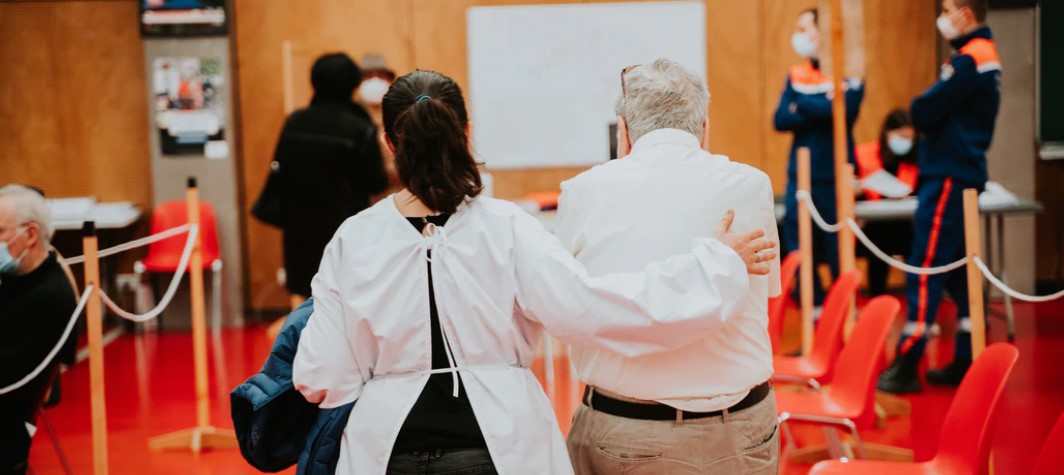
Vaccine wars: How a solution to end lockdowns is being ignored and criminalized
LübeckDr Winfried Stöcker has created and produced, in a fast and targeted manner, a recombinant antigen construct for reliable detection of antibodies against SARS-CoV-2. And a formula for a vaccine is "now available to everyone, free of charge," Stöcker's spokeswoman confirmed to FWM. But instead of being hailed as a true trailblazer, the doctor says he now fears for his life.







